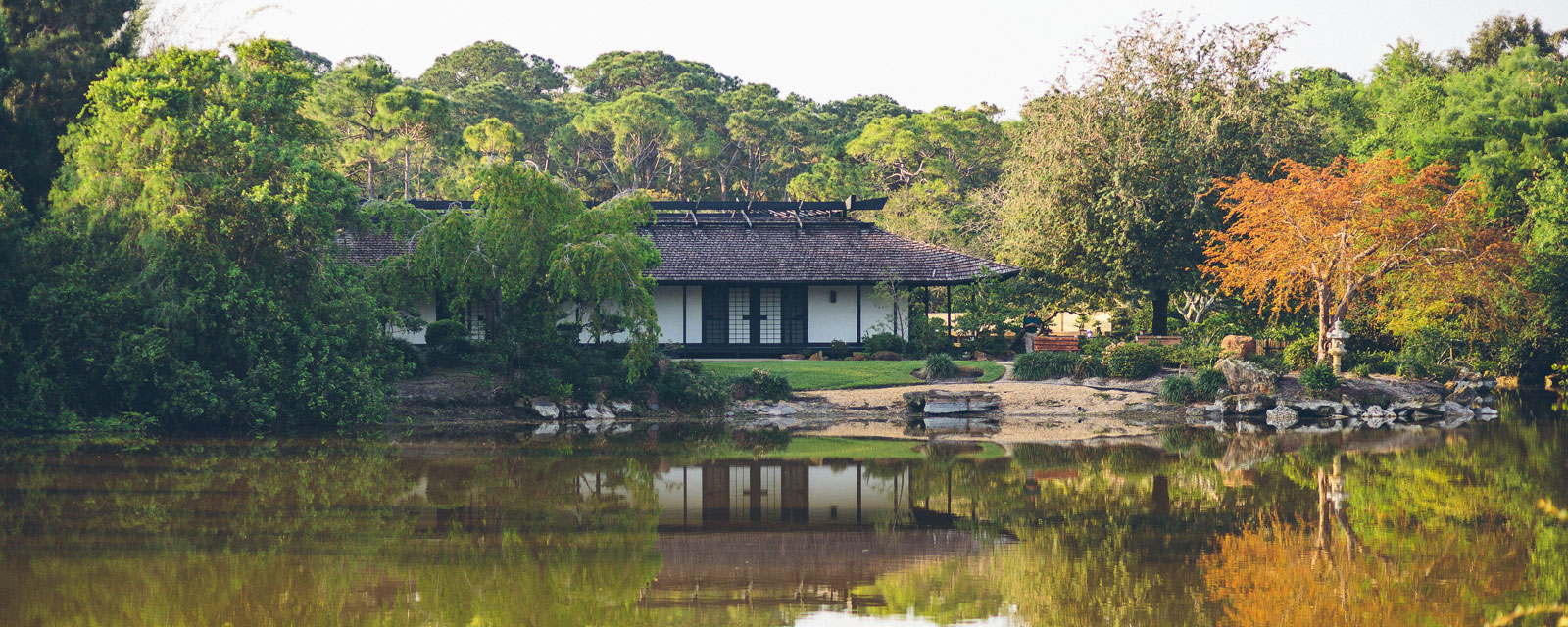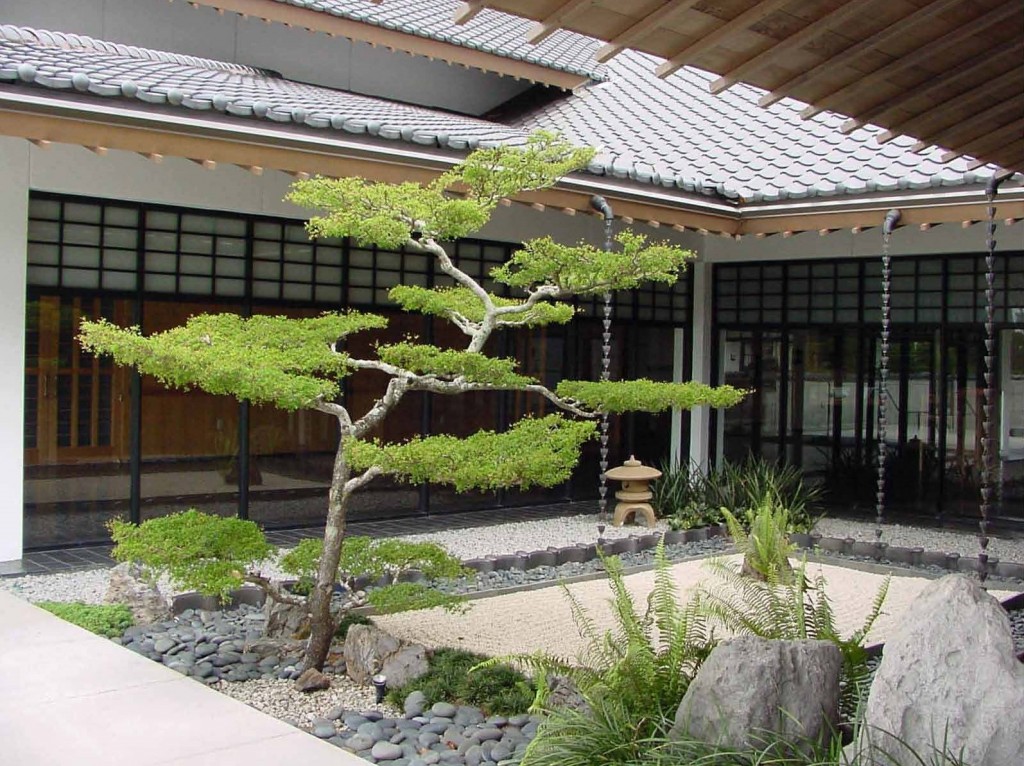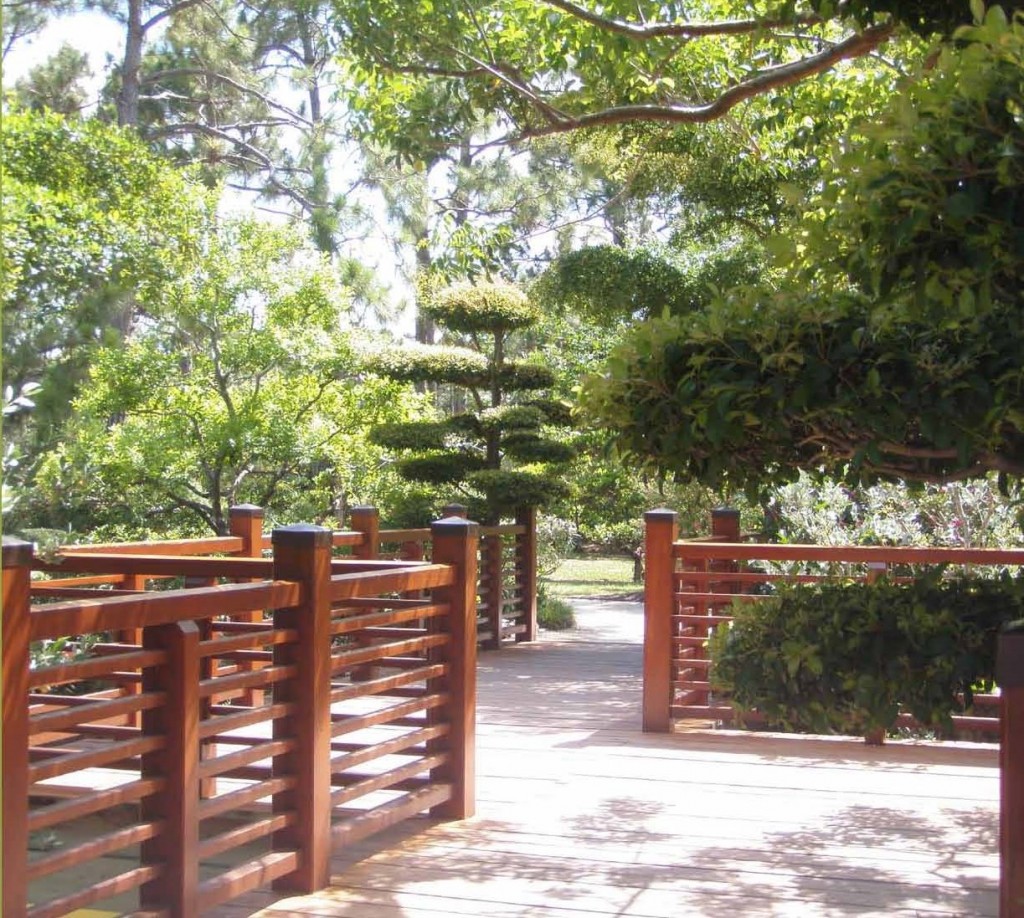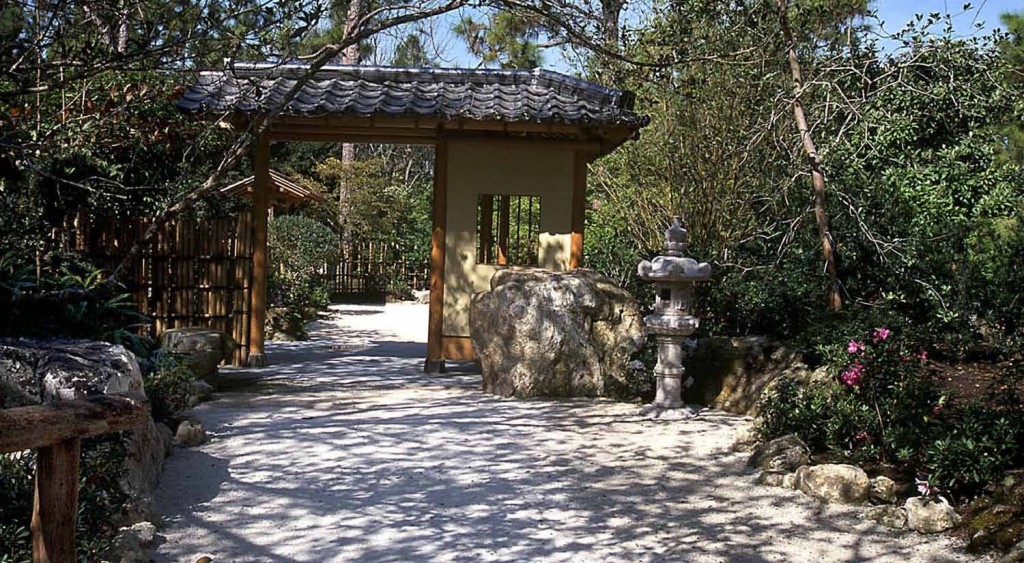 by Glenn R. Swift
by Glenn R. Swift
Since its opening in 1977, The Morikami Museum and Japanese Gardens has been a center for Japanese arts and culture in South Florida, with rotating exhibitions in its galleries, tea ceremonies performed monthly in its Seishin-an tea house, an educational outreach program with local schools and organizations and Japanese traditional festivals celebrated for the public several times a year.
The original building, named the Yamato-kan, is modeled to suggest a Japanese villa. It features a ring of exhibition rooms embracing an open-air courtyard with a dry garden of gravel, pebbles and small boulders. The Yamato-kan offers a permanent exhibit chronicling the history of the Yamato Colony, a Japanese farming community in South Florida 100 years ago.
 The principal museum building opened in 1993 to meet a popular demand for more programming, more versatile facilities and to satisfy the needs of a growing community. The museum’s architecture is inspired by traditional Japanese design. The building features exhibition galleries, 225-seat theater, authentic tea house with viewing gallery, library, classrooms, museum store, cafe and lakeside terrace with Japanese courtyard garden.
The principal museum building opened in 1993 to meet a popular demand for more programming, more versatile facilities and to satisfy the needs of a growing community. The museum’s architecture is inspired by traditional Japanese design. The building features exhibition galleries, 225-seat theater, authentic tea house with viewing gallery, library, classrooms, museum store, cafe and lakeside terrace with Japanese courtyard garden.
The Morikami Museum Collection houses 5,000 Japanese art objects and artifacts, including a 500-piece collection of tea ceremony items, more than 200 textile pieces and recent fine art acquisitions. The 200 acres that surround The Morikami’s two museum buildings include expansive Japanese gardens with strolling paths, resting areas, tropical bonsai collection, small lakes teeming with koi and other wildlife, nature trails, pine forests and park and picnic areas.
In 2001, The Morikami  completed a major garden expansion and renovation. The new gardens reflect major periods of Japanese garden design, from the eighth to the 20th century, and serve as an outdoor extension of the museum. The Morikami Gardens consists of shinden islands, paradise garden and contemporary garden. According to the garden designer, Hoichi Kurisu, each garden is intended to express the character and ideas of a unique counterpart in Japan without attempting to duplicate those gardens, and seamlessly flow together as one garden.
completed a major garden expansion and renovation. The new gardens reflect major periods of Japanese garden design, from the eighth to the 20th century, and serve as an outdoor extension of the museum. The Morikami Gardens consists of shinden islands, paradise garden and contemporary garden. According to the garden designer, Hoichi Kurisu, each garden is intended to express the character and ideas of a unique counterpart in Japan without attempting to duplicate those gardens, and seamlessly flow together as one garden.
The Morikami Museum and Japanese Gardens, with its unique gardens and collections, is one of Palm Beach County’s most treasured cultural attractions. Located in a tranquil natural setting, The Morikami invites visitors to explore its many facets and to discover Florida’s heritage and its connection with Japan.
Since the opening of the original Museum in 1977, Palm Beach County and the Board of Trustees of the Morikami, Inc. have been partners in bringing The Morikami Museum and Japanese Gardens’ services to the public. The park and building are the property of Palm Beach County. The Morikami Inc., a non-profit corporation, provides financial and volunteer support from membership, donations, grants and other revenue-producing activities.
The Morikami Gardens, named Roji-en (“Garden of the Drops of Dew), are ranked 8th among more than 300 Japanese Gardens outside Japan by the Journal of Japanese Gardening. The Morikami includes a series of six diverse gardens, each inspired by a different historical period and type of Japanese garden. This is the only venue in the world to include a sweep of historical garden design, a conceptual theme that is unique to a cultural museum.
“The Museum’s mission to promote understanding of the Japanese culture is carried through to the gardens, which illustrate the Japanese approach to nature over the centuries,” said Larry Rosensweig, past Museum Director.
While botanical gardens are intended to provide knowledge and information about specific plant species, The Morikami Gardens are authentic Japanese-style gardens. They were intended to be experienced through nature as a whole by becoming in tune with a sense of space and rhythm, light and shade, texture and sound.
Our Wonderful World invites you to visit this amazing natural wonder and to stroll the garden with an open mind and relaxed senses. Experience the essence of Japan in Florida. Discover The Morikami.
For more information about The Morikami Museum and Japanese Gardens, please visit www.morikami.org
